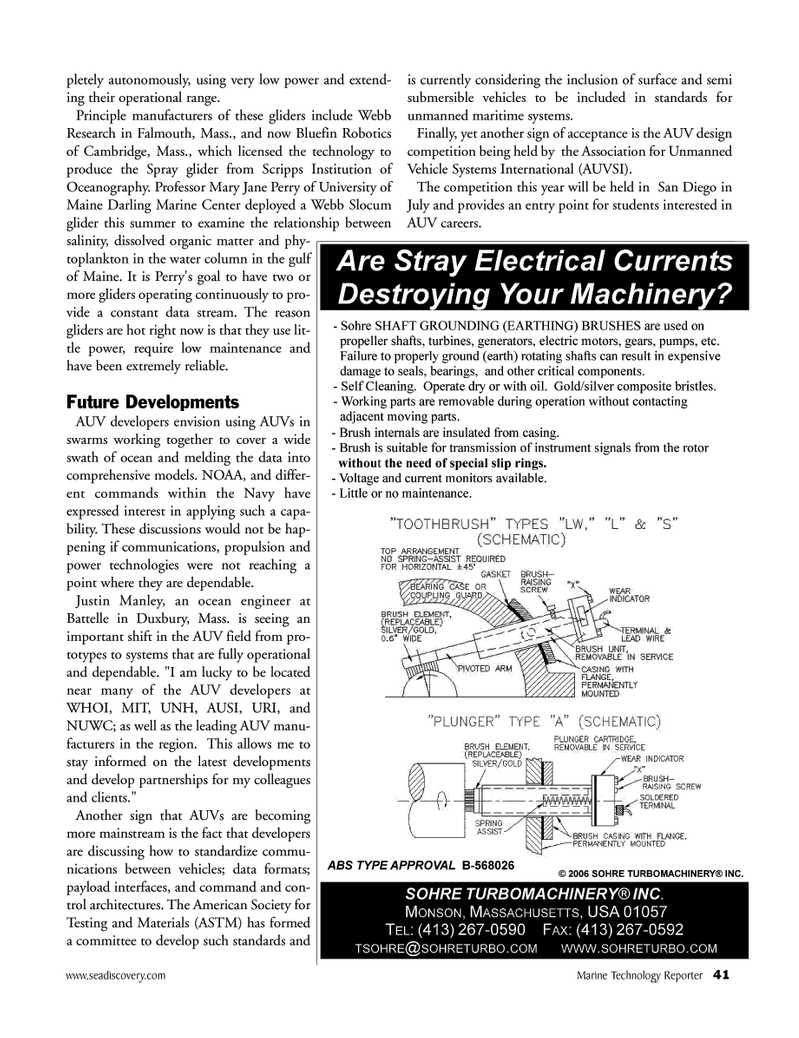
Page 41: of Marine Technology Magazine (March 2007)
AUVs, ROVs, UUVs
Read this page in Pdf, Flash or Html5 edition of March 2007 Marine Technology Magazine
www,seadiscovery.com Marine Technology Reporter 41 pletely autonomously, using very low power and extend- ing their operational range.
Principle manufacturers of these gliders include Webb
Research in Falmouth, Mass., and now Bluefin Robotics of Cambridge, Mass., which licensed the technology to produce the Spray glider from Scripps Institution of
Oceanography. Professor Mary Jane Perry of University of
Maine Darling Marine Center deployed a Webb Slocum glider this summer to examine the relationship between salinity, dissolved organic matter and phy- toplankton in the water column in the gulf of Maine. It is Perry's goal to have two or more gliders operating continuously to pro- vide a constant data stream. The reason gliders are hot right now is that they use lit- tle power, require low maintenance and have been extremely reliable.
Future Developments
AUV developers envision using AUVs in swarms working together to cover a wide swath of ocean and melding the data into comprehensive models. NOAA, and differ- ent commands within the Navy have expressed interest in applying such a capa- bility. These discussions would not be hap- pening if communications, propulsion and power technologies were not reaching a point where they are dependable.
Justin Manley, an ocean engineer at
Battelle in Duxbury, Mass. is seeing an important shift in the AUV field from pro- totypes to systems that are fully operational and dependable. "I am lucky to be located near many of the AUV developers at
WHOI, MIT, UNH, AUSI, URI, and
NUWC; as well as the leading AUV manu- facturers in the region. This allows me to stay informed on the latest developments and develop partnerships for my colleagues and clients."
Another sign that AUVs are becoming more mainstream is the fact that developers are discussing how to standardize commu- nications between vehicles; data formats; payload interfaces, and command and con- trol architectures. The American Society for
Testing and Materials (ASTM) has formed a committee to develop such standards and is currently considering the inclusion of surface and semi submersible vehicles to be included in standards for unmanned maritime systems.
Finally, yet another sign of acceptance is the AUV design competition being held by the Association for Unmanned
Vehicle Systems International (AUVSI).
The competition this year will be held in San Diego in
July and provides an entry point for students interested in
AUV careers.
MTR#2 (33-48).qxd 3/2/2007 11:19 AM Page 41

 40
40

 42
42
